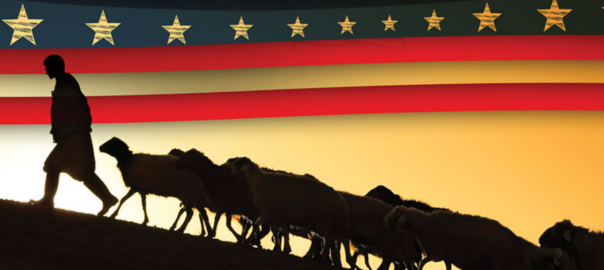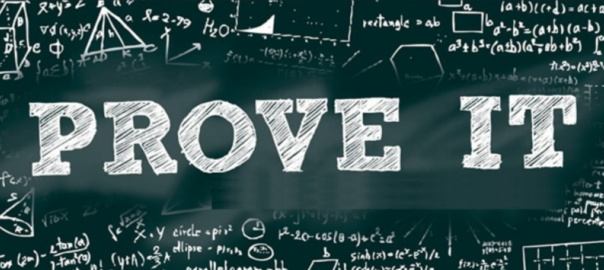This two-part series encourages local church pastors with wise discipleship and effective engagement on issues of political concern. In this first essay, the focus is on the boundaries of wise communication. The second essay looks at some of the hidden issues and groups overlooked in our polarized era. The author has been a pastor and public intellectual for over thirty years, speaking at business, educational centers, public forums and in churches.
Dr. Jim Baucom, senior pastor of Columbia Baptist Church in Falls Church, VA (in the heart of Metro Washington, D.C.), shared about his growing and vibrant community: “People speak of America divided between Blue and Red, Democrat and Republican. Well, our church is very Purple! We have women and men worshiping and serving together that differ deeply on some policies and principles but agree that Christ unites us in our faith and service.”
Pastor A.J. Swoboda leads Theophilus Church: “We are a church in SE Portland. We are here to help people Find Jesus, Build Community and Pursue Justice.” A.J. is a leading voice in ecological theology and helps churches, seminaries and businesses steward the environment as part of worshiping and serving the Lord. He recently published an important book, The Subversive Sabbath, calling believers to recover the divine principle of rest as part of a healthy life in Christ. One of his happiest moments as a pastor came during the 2016 election. Two members of his church are local political leaders from each party. One Sunday just before the November election they served communion together.
These stories of communities finding a deeper unity in Christ and welcoming women and men from diverse persuasions are heartening and offer insights for pastors in our angry, polarized American public square. How do pastors unite compassion and conviction and wisely disciple women and men for participation in public life?
The fear of “being political” keeps many pastors from addressing critical issues. Pastors are rightly concerned about ideology and partisanship eclipsing gospel focus. At the same time, addressing vital moral and social issues is an essential part of effective discipleship and mission. What are some boundaries and insights needed in navigating these rapids?
Three Insights
There are three initial thoughts which help displace fear with courage and reactions with wisdom. The first principle is respecting clear boundaries of biblical truth and civil law. The Bible clearly leads Christians toward good citizenship, prayerful concern for authority and reasonable adherence to the laws in place (Romans 13; I Timothy 2). At the same time, obeying divine mandates above the civil ones and understanding that kingdom citizenship takes priority over current power structures is vital (Matthew 5; Acts 5; Hebrews 11). According to current American law (The 1954 Johnson Amendment to the IRS tax code), churches and other nonprofit organizations that are exempt from taxation, “are absolutely prohibited from directly or indirectly participating in, or intervening in, any political campaign on behalf of (or in opposition to) any candidate for elective public office.” So, there are only two restrictions on political discourse that threaten the religious, non-profit status of a local church. The first is endorsement of a specific political candidate. The second is endorsement of one political party over another. In other words, blatant partisanship.
Pastors and churches CAN
- Speak on any political issues
- Lead voter registration drives (non-partisan)
- Host events inviting all candidates
The issue for most is not the letter of IRS regulation but the fear of alienating members and seekers. This leads us to the second insight: Pastors must choose their issues wisely and frame their arguments biblically. The late theologian Donald Bloesch once said that, “Ideology is the enemy of theology.” Pastors must help congregants discover biblical conviction and discernment on particular policies, not just a particular party’s talking points. In many cases, biblically wise framing will help believers engender new ways of seeing (and even solving) contentious issues. Jesus said we are blessed when we are persecuted for obedience in the kingdom, not obnoxious political agitation.
For example, being biblically pro-life is more than being against abortion. Concern for all people from conception to coronation – especially the broken, poor and vulnerable – is foundational for biblical obedience. Respect for those in the military must be joined with a passion for peacemaking, a hallmark of wise Christian leadership. Libertarian and socialist answers for poverty alleviation fall short compared to a Christian vision for human flourishing that incudes spiritual, relational, social and economic help and private/public integration of resources (See Corbett and Fikkert’s seminal work here: When Helping Hurts, a recommended MTF resource).
Boundaries and wise discernment of the deeper issues must be integrated with the third attribute of wise leadership: courage. Courage is the virtue that avoids the extremes of fear and foolishness. In Joshua 1, the Lord tells the new leader of Israel four times to be “strong and courageous.” In Ephesians 6, Paul asks his readers to pray for boldness in proclamation, even under persecution. Some issues are morally clear, and it is the pastor’s task to unveil the rich biblical insights underneath stated convictions. Some issues require more discernment and here humility joins courage as leaders declare their understanding.
Pastors, speaking courageously is needed. When undergirded by deep prayer and tears for our beautiful and broken world, such speech cannot be confused with the agitation propaganda and polarizing insults permeating our public discourse.
History and hope can frame our communication. It took courage for pastors to speak against slavery and it takes courage to foster racial reconciliation. It took courage for pastors and missionaries to oppose rapacious colonialism and it takes courage to promote justice for all. It took courage for pastors to help bring justice to the workplace, reducing child labor, and encouraging fair conditions and wages. It takes courage for pastors to take on entrenched powers in cities and states keeping many from thriving. And it takes courage for pastors to avoid ideological captivity and empower their congregants for leadership in all spheres of society.
Wise boundaries, Biblical foundations for discernment and courage will help pastors shepherd wisely.




